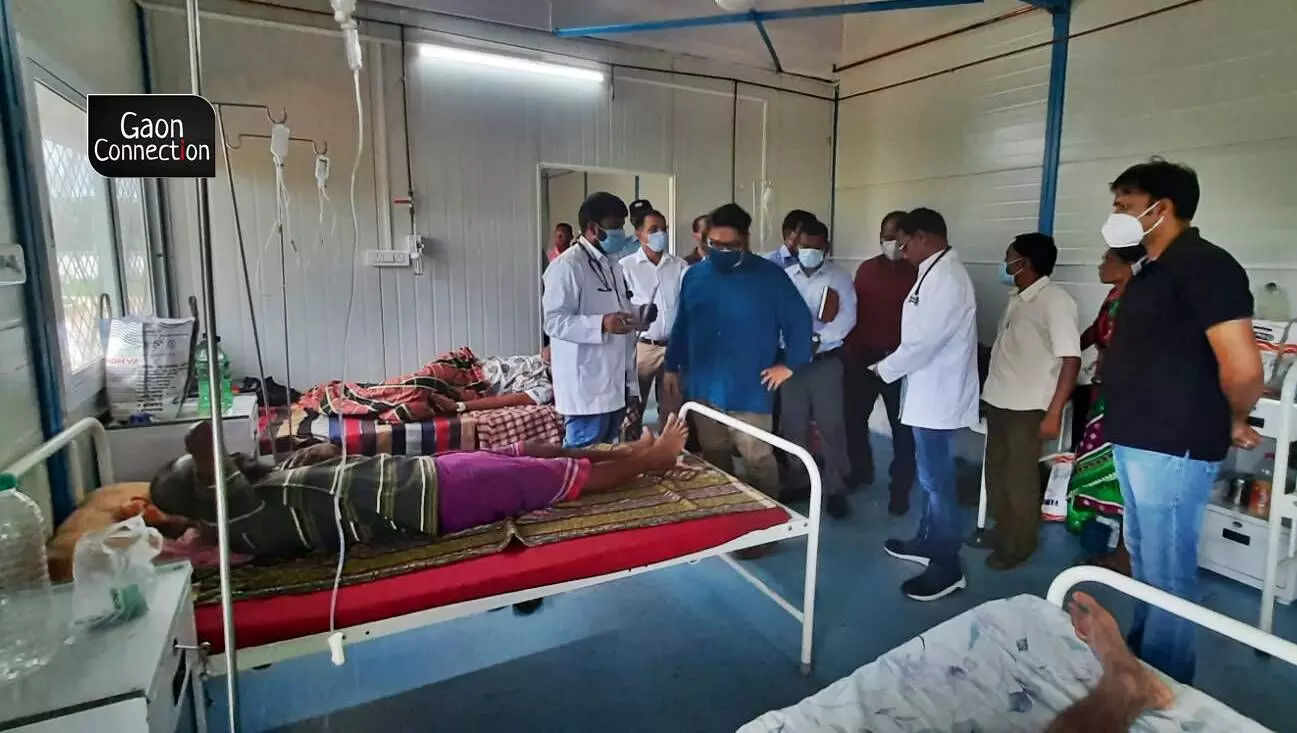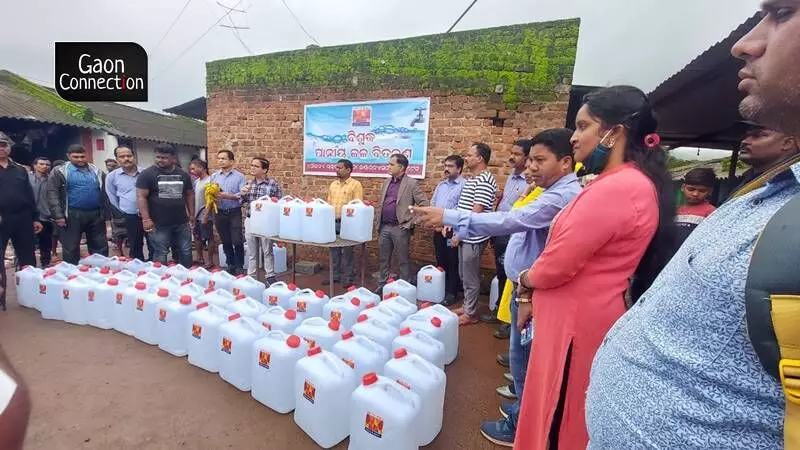Cholera bacteria has been found in the stool samples of rural inhabitants and water samples from villages in six panchayats of tribal dominated Kashipur block in Rayagada district, which is in the grip of a severe water-borne disease outbreak. At least nine people have been killed in the affected block of Odisha.
The latest victim has been identified as Arjun Majhi of Dengaguda village, who had complained of loose motion and vomiting. His family members rushed him to the hospital but he died on July 22 night.
Cholera, an extremely virulent disease that can cause severe acute watery diarrhoea, can turn fatal if not treated right away. It is a bacterial disease that usually spreads through contaminated water. Cholera has reportedly spread in the gram panchayats of Dudukabahal, Tikiri, Sankarada, Panchali, Maikanch and Nakatiguda.

“After the death of some persons in Kashipur block, the district health officials sent the stool samples of 30 gastro-affected patients, and water samples of some villages to the RRMC (Regional Medical Research Centre) in Bhubaneswar for examination in the laboratory. The scientists of RRMC found cholera bacteria in the stools of 10 gastro- affected persons,” Niranjan Mishra, the director of public health, Government of Odisha, said. “The bacteria has also been found in the water used by the villagers,” he added.
The district health officials have pressed the panic button after the scientists found cholera bacteria in stool and water samples.
“Earlier, we thought that all the affected villagers were suffering from gastroenteritis. But we now came to know that the deadly waterborne disease cholera is spreading its tentacles in the villages of Kashipur block. We have formed an emergency team of doctors to treat all the affected people,” Lalmohan Routray, Chief District Medical Officer of Rayagada, said. “The epidemic, which broke out last week, continues unabated, with more and more cases being reported at the local hospital as well as in the district government hospital,” he added.
Routray went on to inform that a large number of villagers are dependent on the water of tube wells for drinking, which we sent for testing and found cholera bacteria in some water samples for which the officials of Rural Water Supply and Sanitation department have started disinfecting the tube wells. “We will again examine the water from the tube wells after a week of the disinfection,” added the Chief District Medical Officer.

Four medical teams are camping in the villages to control the situation. Senior health officials, including Naranjan Mishra, the director of public health, Odisha; Naba Kishore Das, the minister of Health and Family Welfare, Odisha; and Jagannath Saraka, the Minister, ST & SC Development, Minorities & Backward Classes Welfare, Law have recently visited Kashipur area and reviewed the health situation. “We are taking necessary steps to check the spread of waterborne diseases and have stocked sufficient medicines in the hospitals to treat the patients”, said Routray.
Villagers are blaming the poor drinking water infrastructure for the spread of cholera in the district. “Some contractors in a clear nexus with the officials of Rural Water Supply and Sanitation department dug shallow tube wells instead of deep tube wells in many villages because of which we are not getting good quality water and people are suffering from water borne disease,” Saroj Mandal, a social worker of Kashipur, complained. “In many cases, tube wells are not working at all. Many villagers also continue to depend heavily on the water of open wells and ponds, which is unsafe to drink,” he added.
“The rampant water-borne disease is spreading its tentacles as gastroenteritis has become a recurring problem in many villages this rainy season. The unprecedented scarcity of drinking water has compounded the problem forcing the rural people to consume water from polluted sources as the authorities have failed to provide drinking water in many villages,” said Bijay Gouda of Kashipur.

As for the preventive measures, the distribution of bleaching powders for disinfecting water remains erratic, complained Gouda. “It is high time for the authorities to check the waterborne diseases on a war footing way,” he added.
Swadha Dev Singh, the collector of Rayagada, said all efforts were being made to supply clean drinking water in affected areas. “We have stationed mobile RO water vans at Tikiri, Vaidyanath Sagar and other affected villages in Kashipur for supply of clean drinking water to villagers. Awareness activities on sanitation, hand washing and clean drinking water are being taken up in many villages of Kashipur block,” the collector said.
“We have been providing plastic water storage cans to many villagers of Kashipur block for safe storage of clean drinking water. Anganwadi workers have been checking the water quality and supplying boiled water in various villages of Kashipur block, the collector said. According to him, people with any symptoms can call the Control Room for treatment and whoever needs arrangement for transportation can call for an ambulance to the nearby hospitals.




















